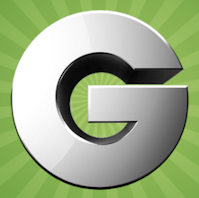
The company’s increase of 8% for its first quarter is partly being attributed to the departure of Mason, who recently announced he’d be a part-time partner at a start-up called Y Incubator. While Mason is credited with founding the company, he was also blamed for its repeated poor results. It didn’t help that CNBC named him “Worst CEO of the Year” for 2012.
Pull, not push
Groupon Inc (NASDAQ:GRPN)’s initial business model was simple. E-mail deals to customers and entice them to participate in a daily deal. Instead of relying on this business model, which the company calls a “push technique,” Groupon now plans to “pull” customers in by helping them find deals via search rather than waiting for coupons to arrive in their inbox.
According to Groupon Inc (NASDAQ:GRPN)’s CEO, mobile device users buy 50% more than their desktop PC users do. The service has already added a “search for deals” box to its site in certain cities and plans to beef up offerings. As Groupon points out, there are only so many deals that can be sent by e-mail. This new search box will let customers enter a specific term (i.e. “pizza”) and find deals specifically related to that. While the company will continue to send e-mails, the search functionality opens up Groupon Inc (NASDAQ:GRPN) to new possibilities for growth.
The pull concept may work even better for Google Inc (NASDAQ:GOOG) Offers, since the company can use its own search engine to reach customers. In fact, Google recently added offer extensions into its AdWords, letting businesses advertise their deals through the AdWords platform. When a company searches for a product or service, the offers appear in search results, increasing exposure for that business. This is only one area for the company whose net earnings reached $3.9 billion in the first quarter.
However, since mobile is still a weak spot for Google Inc (NASDAQ:GOOG), an increase in ad revenue could help increase its bottom line. Google Offers can be found through Google searches, as well as being incorporated into Google Maps for Android, Google+, Google Wallet, and more.
Amazon tries to compete
The top competitor for Groupon, Living Social, experienced a $650 million loss last year. In fact, analysts noted that Amazon.com, Inc. (NASDAQ:AMZN) took a serious dent (to the tune of $274 million) due to its investment in the daily deal site.
Instead of buying Living Social outright, Amazon choose to initiate its own service. Amazon Local works with local businesses to provide deals to consumers. Instead of directly competing with Groupon Inc (NASDAQ:GRPN), Amazon.com, Inc. (NASDAQ:AMZN) is using Local to help transition into partnering with local businesses to provide delivery of local items to customers. These partnerships will also allow Amazon to provide same-day delivery for its products.
Of all three companies, Amazon.com, Inc. (NASDAQ:AMZN) is still the clear winner, with $16.07 billion in revenue for its first quarter. But with a drop in profits from $130 million in the first quarter of 2012 to $82 million in the first quarter of 2013, it’s clear Amazon needs a jump-start to put it above Groupon and Google Inc (NASDAQ:GOOG), especially as Groupon Inc (NASDAQ:GRPN) continues to gain ground.
Stephanie Faris has no position in any stocks mentioned. The Motley Fool recommends Amazon.com and Google. The Motley Fool owns shares of Amazon.com, Inc. (NASDAQ:AMZN) and Google Inc (NASDAQ:GOOG).
The article Groupon Rallies After Departure of CEO originally appeared on Fool.com.
Stephanie is a member of The Motley Fool Blog Network — entries represent the personal opinion of the blogger and are not formally edited.
Copyright © 1995 – 2013 The Motley Fool, LLC. All rights reserved. The Motley Fool has a disclosure policy.




